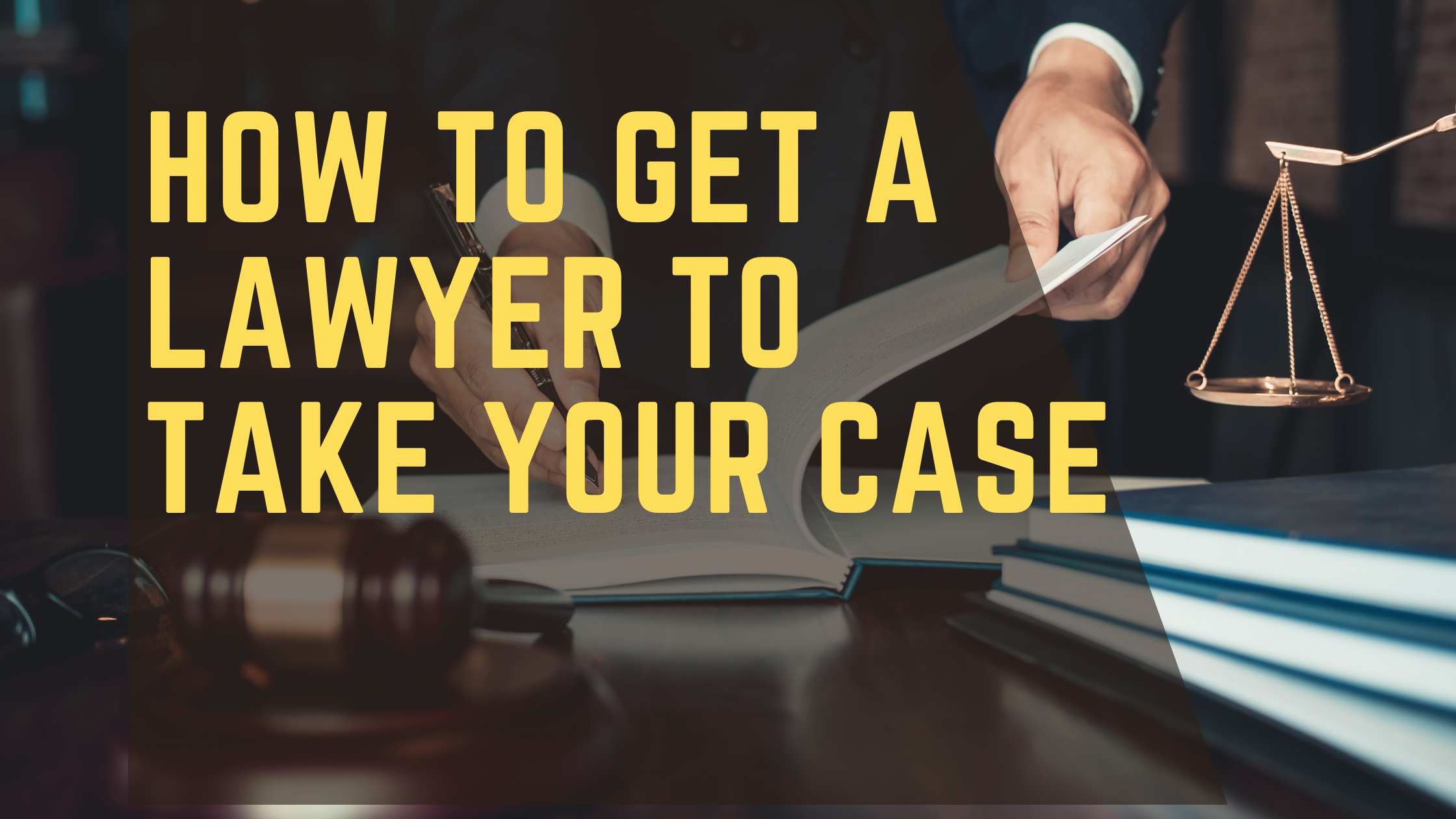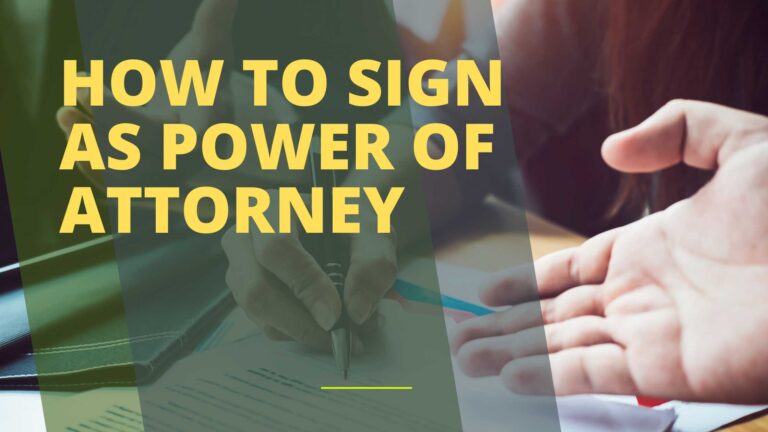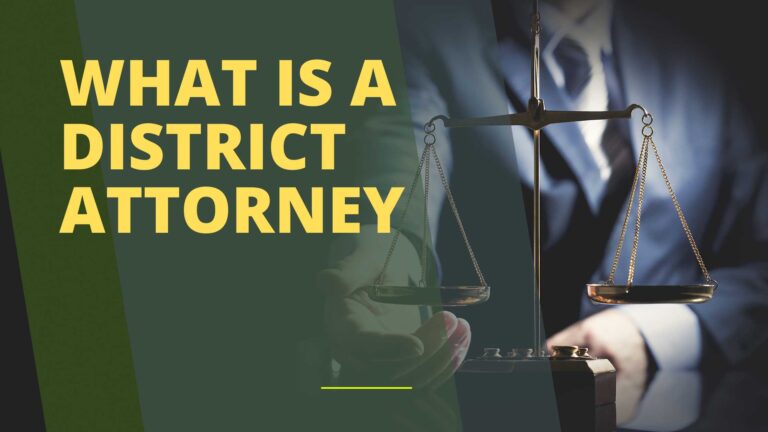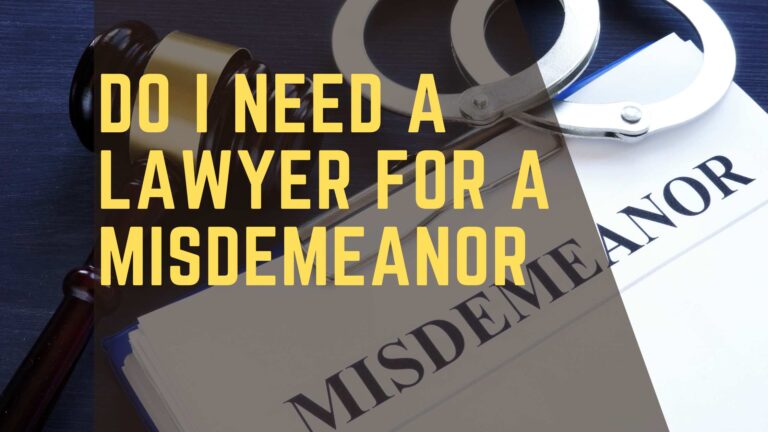How to Get a Lawyer to Take Your Case?

To get a lawyer to take your case, present it clearly and demonstrate its legal merit. Provide evidence and be upfront about the potential for success.
Securing legal representation can be crucial to navigating the complexities of the law. An attorney, equipped with professional expertise, can significantly influence the outcome of your case. To attract the right legal advocate, it’s essential to communicate the facts concisely and highlight the strengths of your argument.
How to Get a Lawyer to Take Your Case? Lawyers are often selective about the cases they accept, making it vital to show that your case is winnable and worth their time and resources. A compelling narrative, supported by substantial evidence, can tip the balance in your favor. Engaging a lawyer involves not just presenting the legal challenge you face but also illustrating a clear path to victory that aligns with the attorney’s expertise and interests.
Evaluating Your Legal Situation
Convincing a lawyer to take your case requires clear understanding of your legal position. Knowledge of case details and evidence clarity can make a difference. Start by identifying the case type and evidence strength.
Identifying The Nature Of Your Case
Identifying the type of legal issue is the first step. Cases can range from personal injury to contract disputes. Determine your case category. This clarity helps you approach the right lawyer.
- Personal Injury: Injuries caused by others.
- Family Law: Divorces, custody battles.
- Criminal Law: Charges for crimes.
- Employment Law: Work-related issues.
- Business Law: Company disputes and contracts.
Assessing The Strength Of Your Evidence
Strong evidence builds a compelling case. Gather documents, photos, and witness statements. These materials can show your claim’s validity. A well-documented case attracts legal assistance.
| Material | Importance |
|---|---|
| Documents | Contracts, records, confirm details. |
| Photographs | Show incident severity and context. |
| Witness Statements | Add credibility to your narrative. |
Analyze the evidence critically. Solid proof means lawyers more likely take your case. Weak evidence needs reinforcement. Collect and organize every relevant piece.
Compiling Essential Documentation
Getting a lawyer to take your case hinges heavily on the evidence you present.
Essential documentation serves as the backbone of your legal claim.
The clearer the evidence, the higher the chances of a lawyer representing you. Prepare your case thoroughly with accurate and complete documentation.
Gathering Pertinent Records
Start by collecting every relevant document. Think of these records as the building blocks of your case.
- Emails and correspondence related to your case
- Contracts or agreements that apply
- Official reports such as police or accident reports
- Any medical records if injuries are involved
- Receipts and invoices connected to your claim
Organize all records in a way that they can be easily accessed. Label each document by type and date.
Creating A Chronology Of Events
A clear timeline helps explain the story of your case.
Construct a chronology to guide your potential lawyer through the events swiftly.
- Note important dates and details of each event
- Match supporting documents with respective events
- Highlight critical milestones that define your case
Use a simple format such as a bullet-point list or a table for ease of understanding.
| Date | Event | Document |
|---|---|---|
| January 1 | Incident occurred | Police report |
Seeking The Right Legal Expertise
Choosing the right legal expert is a crucial step in winning your case. This expert will be your guide and advocate through complex legal processes. To match with an ideal lawyer, thorough research and understanding of law practices is necessary. In this section, we dive into how to find the right legal expertise for your case.
Researching Potential Attorneys
Start by listing the qualities you seek in a lawyer. Your list may include experience, success rates, or communication skills.
Use these tips to find possible lawyers:
- Check online legal directories for attorney profiles and reviews.
- Search for lawyers with experience in your specific legal issue.
- Ask friends or family for referrals if they had similar legal matters.
Make notes on each attorney’s background to compare and contrast later.
Considerations For Specialized Law Practices
Different cases require special legal skills. Look for an attorney with expertise in your legal area.
Consider these factors:
| Area of Law | Specialization | Needed Expertise |
|---|---|---|
| Family Law | Divorce, Custody | Mediation skills, empathy |
| Personal Injury | Accident, Malpractice | Trial experience, negotiation |
| Employment Law | Discrimination, Wrongful Termination | Regulatory knowledge, litigation |
Choose a lawyer who practices the law that fits your case. Make sure they have the right training and licensing for your needs.
Making A Persuasive Approach
Getting a lawyer to take your case is an art in persuasion. You must show that your situation merits their time and expertise. Prepare to showcase the potential of your case with a persuasive approach. An outline with clarity and compelling details will capture a lawyer’s interest. This includes both a strong initial inquiry and ongoing, effective communication strategies.
Crafting A Convincing Inquiry
Start with a brief, direct email or phone call. Respect the lawyer’s time. Condense your story. Highlight the critical facts. Ensure your case aligns with the lawyer’s speciality. Your first message might be your only chance. Make every word count.
- Summarize your issue in one or two sentences.
- List any deadlines or important timelines.
- Mention key pieces of evidence you have.
- Express your willingness to proceed and discuss terms.
Effective Communication Strategies
After your initial inquiry, maintain clear, structured communication. Reply promptly to emails or calls. Organize your information. Present everything in a clear way. Respect professional boundaries. Communicate your dedication to resolving the case.
- Respond quickly to requests for more information.
- Keep records tidy—documents, emails, and texts.
- Use bullet points to break down complex information.
- Stay focused on the legal aspects of your situation.
Negotiating Representation Terms
Finding the right lawyer is like a partnership. You must talk clearly about working together. Let’s explore how to negotiate terms with a lawyer for your case.
Understanding Attorney Fees
Understanding Attorney Fees
Lawyers charge differently for their services. Knowing these can help you choose wisely:
- Hourly rates: You pay for each hour your lawyer works.
- Contingency fees: Your lawyer gets a part of your win. No win, no fee.
- Flat fees: One fee for the whole case. Good for simple tasks.
- Retainers: An upfront amount to start working on your case. It’s like a down payment.
Discuss these fees with your lawyer. Find what works best for your budget and case.
Agreeing on the Scope of Representation
Agreeing On The Scope Of Representation
What your lawyer does for you should be clear. Talk about these:
| Scope Part | Details |
|---|---|
| Advice | Your lawyer gives ideas and next steps for your case. |
| Research | Finding the facts and laws to help your case. |
| Court | Your lawyer speaks for you in court. |
| Paperwork | Filling forms and writing letters for your case. |
Be clear about what you need and agree on these with your lawyer.
Preparing For The Initial Consultation
The initial consultation is a pivotal moment in your search for legal representation. It’s your opportunity to share your story, gather information, and assess the lawyer’s ability to represent your interests effectively. Prepare meticulously to ensure you make the most of this encounter.
What To Expect During The Meeting
Knowing what will happen sets the stage for a productive meeting. Here’s a quick rundown of what to expect:
- Detailed conversation: The attorney will ask about your case.
- Evaluation: They will assess the strengths and weaknesses.
- Legal strategy: Potential approaches may be discussed.
- Costs and fees: Expect a clear explanation of charges.
Questions To Ask Your Prospective Lawyer
Equip yourself with key questions to determine if the lawyer is a good fit:
| Category | Questions to Consider |
|---|---|
| Experience |
|
| Communication |
|
| Costs |
|
| Next Steps |
|
.jpg)
Credit: www.prinz-lawfirm.com
Conclusion
Securing a lawyer for your case is crucial for a favorable outcome. Let your story resonate and ensure your documentation is thorough. Choose attorneys with expertise relevant to your case and show willingness to proceed. Be prompt and professional in your communications.
Remember, the right match makes all the difference in legal battles.
Amelia Justiceberg, a distinguished legal luminary, thrives on the intersection of empathy and legal acumen. As a prominent family law attorney, she orchestrates compassionate resolutions amidst complex dynamics. Justiceberg's courtroom finesse and dedication to fairness define her practice. Beyond litigation, she ardently advocates for social justice, solidifying her reputation as an influential force in the legal landscape.






